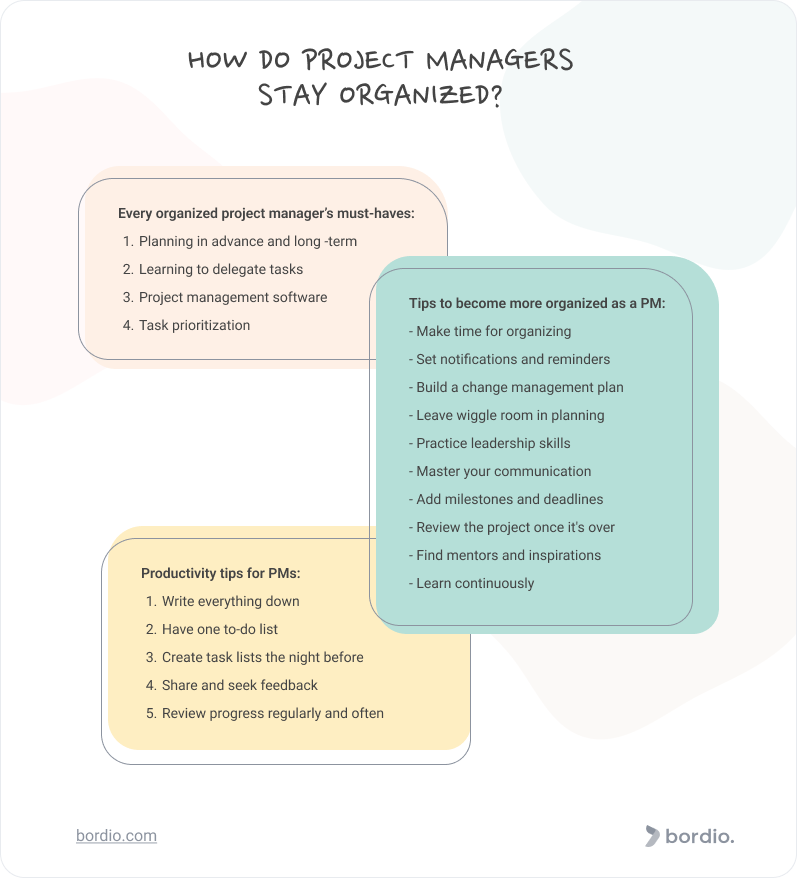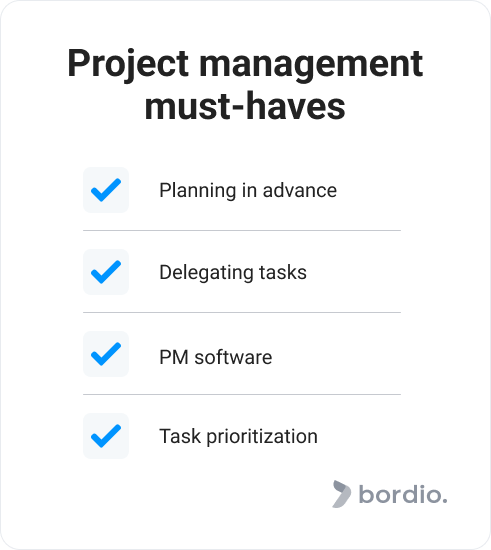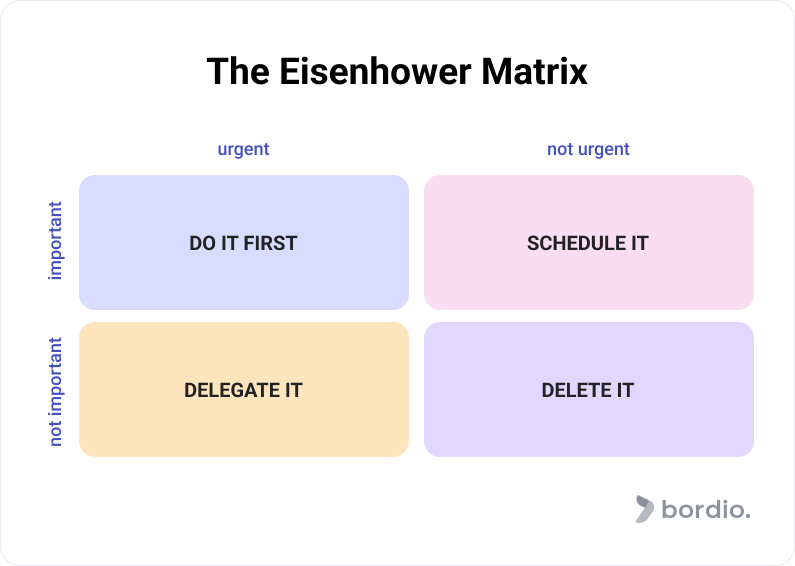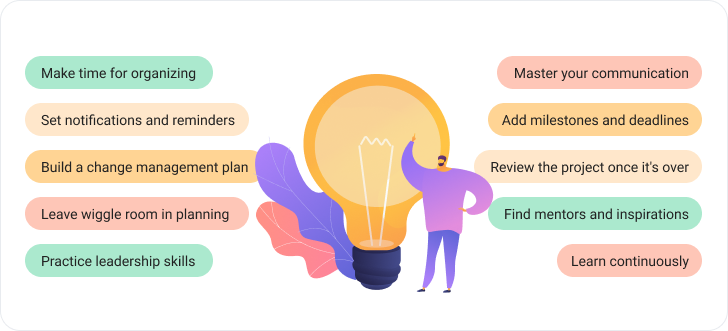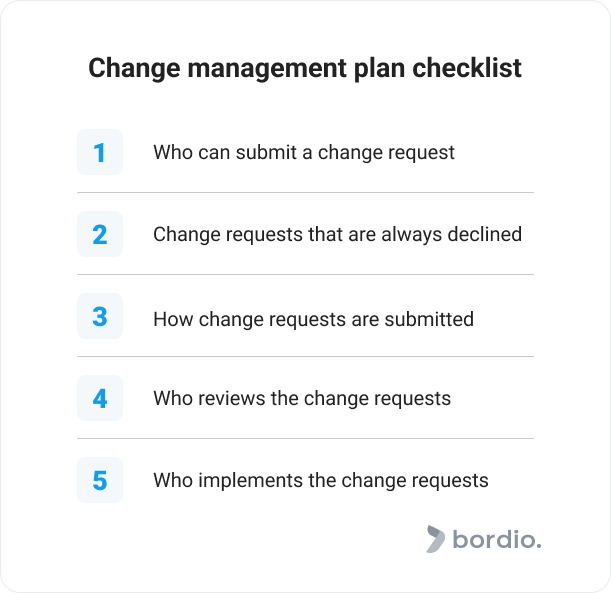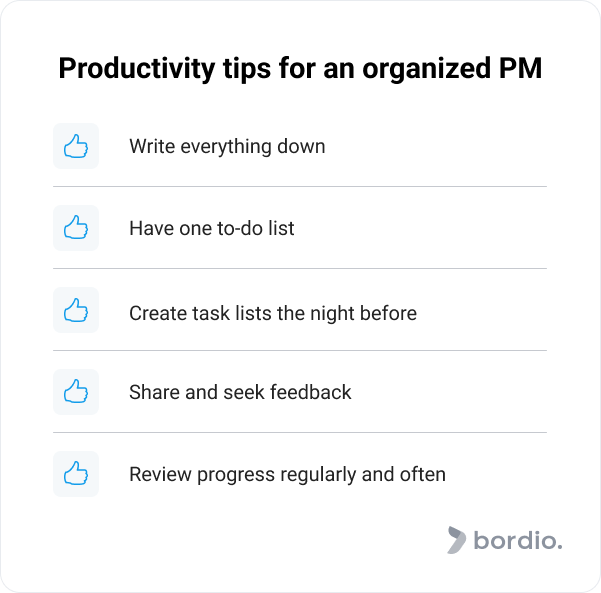Project management is a balancing game.
Project managers (PMs) are constantly juggling the project’s triangle, stakeholders, changes, and risks. In order to succeed, the PM must stay in control at all times. And the best way to be in control is through a smart task organizational system that keeps them sane and productive.
What does the project manager do?
Project managers are central figures in every project. They are the ones responsible for the projects’ success that they work towards by uniting all stakeholders together, planning the resources and budget, and monitoring the project status with key project goals.
For more detail, read the Top-10 Project Manager Roles and Responsibilities and What Does a Project Manager Do? articles in our blog.
Every project manager must-haves
Every project is different. And, depending on the industry and even the company the PM works for, their day-to-day operations will look different. However, some things are universal and every project manager must adapt them to stay organized and thrive in their role.
#1 Planning in advance
Project management success is unthinkable without planning, yet many project managers under plan or plan for the short term only.
It’s vital to see the entire timeline of the project and outline project goals, schedules, dependencies, key deliverables, and main risks. Think of as many details as possible to ensure the project is successfully delivered.
Having a detailed plan means you can track progress and plan the next steps with high accuracy in the best project management tools.
#2 Delegation
Nobody can do everything on their own. At least not without missing out on creative ideas and burning out.
Delegating tasks, whether you like the idea or not, is the cornerstone of successful project management.
It doesn’t come easy to everyone, but the more you delegate, the easier it becomes to give up power. And, the better you become at communicating what’s required and finding the right person for the job.
#3 Project management software
Technology has become a huge part of our lives and project management is no exception. The right project management tool can elevate your work process and ensure you stay organized no matter what.
Bordio online calendar planner, for example, supports multiple projects in addition to being a powerful weekly planner. You can have projects running smoothly and your personal to-dos dealt with in a timely manner too.
Review all your events and tasks in a single calendar, schedule time blocks to reserve the time for important tasks, and use the waiting list to log all unscheduled tasks, ideas, and thoughts in time planner free.
#4 Prioritization
Not all tasks and deliverables are equally important. Defining priorities correctly means guaranteeing that the most important stuff gets done no matter what.
Even if you think that everything is important, it is not. Failing to set priorities creates needless panic and urgency, adding to the overall stress.
Try the classic Eisenhower Matrix if you struggle with priorities:
And for more insight on dealing with long to-do lists, read the detailed Task Prioritization guide.
#5 A filing system
When you work on a project, files tend to accumulate fast. And before you know it, half of the communication becomes about locating a specific document.
Needless to say, it’s not the best use of everyone’s time. So, in order to prevent time waste and having your entire team distracted at all times, train your organization skills by creating a smart filing system that is easy to navigate. Come up with a universal naming template for files and folders. Outline the rules for file updates and share them with the team, also use team management app.
Tips to becoming a better-organized project manager
Effective project management is only possible when the project manager is organized.
Reserve time in your schedule to organize
Unfortunately, we don’t just wake up organized one day, we need to do the work for the transformation to happen.
Find the time during the day that you think is best for organizational activities and dedicate them to schedule planning, structuring, and re-organizing your to-dos.
Tip: Most people find early morning or the evening as the best times for becoming organized. It’s too easy to be distracted by an incoming message or an urgency in the middle of the day.
Set notifications
Whether it’s an elaborate multi-level system of notifications or simple one-off reminders, you need to start using notifications right now.
No matter how important something is, we can forget about it in the midst of daily chaos. Once you miss a couple of tasks or deadlines, they start to snowball into a bigger uncontrollable issue.
Have a change management plan for every project
Everyone knows about risk management and how vital it is to plan for potential risks. However, not many project managers pay the same attention to change management. So plan individually in your free weekly schedule planner.
A change management plan does not have to be grand and extensive, but it must contain all the key elements:
We talk more about the change management plan in our Implementation Plan article, so make sure to go through it as well.
Leave wiggle room
A smart project manager knows that no matter how vigorously you plan, and how thoroughly you estimate the time it takes to complete the project, something always goes wrong and you end up spending more time than anticipated.
That’s why if you plan back-to-back, you do yourself a disservice and increase the chances of having some kind of a disaster.
Practice leadership skills
It doesn’t come naturally to every successful project manager, and even if it does – there’s always room for improvement. A lot of project management is negotiating and problem-solving. Being a trusted leader with a good reputation allows you to prevent certain conflicts and resolve issues more efficiently.
Pay attention to how you communicate
Open communication is key in projects. The way you communicate and how often that happens has a direct influence on the outcome.
- Define expectations from yourself and your team. Let everyone know what the scope of work is, how it is evaluated, and why it is structured a certain way.
- Prioritize clarity and transparency to avoid conflicts, confusion, and redundant work.
- Encourage idea sharing among team members.
- Don’t punish a team member for bringing bad news, or highlighting concerns and issues.
- Run sync meetings where everyone can get an update on the team’s progress and ensure they are on the same page.
Add milestones and extra deadlines
One of the ways to stay organized while managing projects is through careful monitoring of progress.
Milestones can serve as morale boosters as they’ll signal the team that another important step is done. Additional deadlines, outside of the main timeline, can help stay on track and prevent falling behind. Set deadlines for little things and use them to keep the project’s team focused. If your coworkers are working online it’s better to use tools to manage remote employees.
If you’d like to learn more about milestones and how they are different from goals, make sure to read our expert article on Project Milestones.
Dedicate time to review the project once it’s completed
Always review the project and team’s performance.
It is important to improve over time, and you can do that by noticing what worked well and what didn’t. You can cut inefficient practices out of the next project planning, and make sure everything that worked well is used in the upcoming projects too.
Make those reviews a team activity. In Scrum, it is called Sprint Retrospective and it is one of the five key Scrum ceremonies.
Find successful project managers who inspire you and learn from them
Get them to mentor you if possible. If not, watch them and try to notice how they manage to succeed in certain situations.
If you’re struggling to find an inspirational figure, check out our carefully curated list of Best Project Management Books. They are written by renowned project management professionals who each have a unique take on projects.
Never stop learning
Thankfully, we live in an era where tons of great information is available to us if we want it in all kinds of formats. No matter what your lifestyle is, there is a way for you to learn continuously and improve at your job. Take short courses, sign up for a university degree, read expert articles, watch videos, or go to conferences.
Today’s life is ever-changing, and we must learn new things to stay relevant. If you’re not sure where to start, check out Bordio’s articles about The Basics of Scrum Project Management, The Project Scope guide, and The 10 Biggest Project Management Challenges.
Bonus productivity tips for an organized project manager
To finish this article strong, we want to offer you bonus productivity tips that will make you the most organized project manager you’ve ever met. These tips are universally good, so they can be shared with or used by non-project managers too.
- Write everything down. You will forget something, we can guarantee it. And yes, we are speaking from painful personal experiences. Don’t put this extra stress on yourself by making your brain remember everything. Write it down and be certain you won’t forget.
- Have a single online to-do list with all your project and personal tasks. Work and personal life go hand-in-hand, so if you want to be truly organized, you need to be aware of both simultaneously.
- Create a task list in your daily planner the night before. That way, using task makers you won’t have decision-making fatigue the next morning but will go straight to work.
- Share feedback but also seek feedback. As a PM, you are in a position to praise and critique the work of others. Try to get feedback on your work and performance too. Ask all stakeholders what could be done better and what caused confusion for them. It’s not easy for our egos, but it helps us to learn where we fail. That’s how we grow the fastest.
- Review progress daily (or at least weekly). Even if everything looks fine, it may not be fine if you pay close attention. A project’s success is very fragile, so it’s better to be extra sure everything’s under control than suffer from the consequences of excessive optimism. Use daily schedule planner free.
Benefits of being an organized project manager
Let’s look into the key benefits that a PM with strong organizational skills can enjoy:
- Better time management
- Less stress and anxiety
- Increased productivity
- Smoother workflow
- Meeting deadlines
- Staying within the project’s budget
- Stronger project outcome
- Happier team and stakeholders
Final thoughts on how project managers stay organized
From maintaining team members’ morale and the project’s pace within the timeline to keeping stakeholders in the loop, project managers are deemed to be constantly overwhelmed.
Although it might look like a stressful nightmare, the good thing is that project managers have a lot of flexibility and power to build their routines and overall processes. It means that with intention and focus, every project manager can become better organized and facilitate their projects’ success.
Remember – organization, just like time management is a skill, not a trait.

